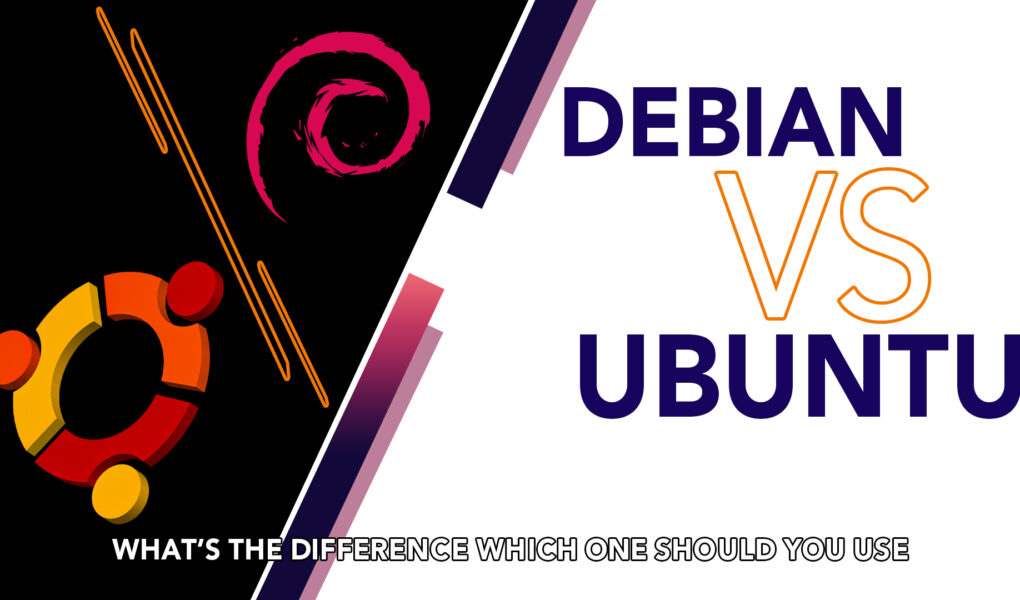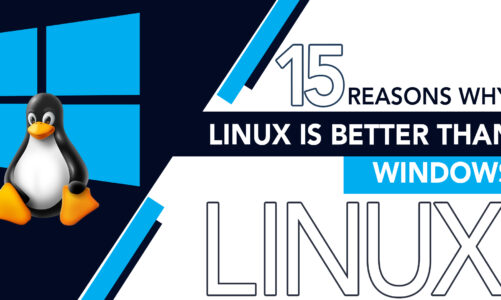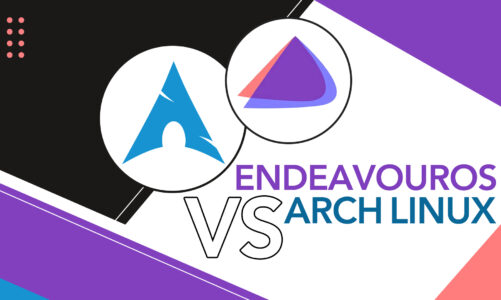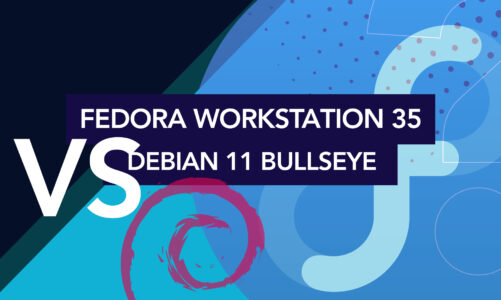Debian and Ubuntu are two of the most popular and widely used operating systems for personal computers and servers. Both of them are based on the Linux kernel and have a large number of users, but there are significant differences between the two.
No matter if you have recently switched to Linux or have been a dedicated user for some time, you need to know the basics of it, the difference, and most importantly, which one you should use based on your needs. So, here’s what’s important to learn.
What is Debian
Debian is a renowned, open-source operating system that has been serving the Linux community from the time of its inception in 1993. Built upon the Linux kernel, Debian is widely recognized for its stability, security, and comprehensive repository of software packages.
It is regarded as a community-driven project, with contributions from a global network of volunteers who ensure its continuous development and improvement. As a result, Debian has become a highly customizable and flexible operating system that can be adapted to meet the unique requirements of its users. It also serves as the basis for several well-known Linux distributions, such as Ubuntu.
What is Ubuntu
An open-source operating system built on the Debian GNU/Linux distribution, its mission is to bring Linux to the masses, and it has successfully done so by offering a user-friendly interface and simple-to-use package manager.
Ubuntu is released on a bi-annual basis, emphasizing stability, security, and timely updates. Whether it’s for personal or professional use, Ubuntu is widely used and supported by a large community of developers and users, contributing to its continuous improvement.
What’s the Difference between Debian and Ubuntu
Debian and Ubuntu are both popular Linux-based operating systems, but there are some important differences between the two that make them distinct. Let’s delve deeper into these differences:
- Package Management: Debian utilizes the Advanced Package Tool (APT), a collection of tools for managing packages and repositories, for package management. In contrast, Ubuntu uses the Ubuntu Software Center, a graphical front-end for package management that offers a user-friendly interface for managing and installing packages.
- Release Cycle: Debian’s slower release cycle prioritizes stability, meaning new versions are released less frequently but are well-tested and more dependable. In contrast, Ubuntu has a faster release cycle that emphasizes new features and a modern experience, with new versions released more frequently.
- System Customization: Debian provides a high degree of customization and control over the operating system, offering many options for configuring the system to meet specific needs. On the other hand, Ubuntu provides a more streamlined, user-friendly experience with a focus on simplicity and ease of use.
- Support: Debian offers support for a longer period of time, but Ubuntu provides more commercial support options. Debian is maintained and supported by a large community of volunteers, while Ubuntu is maintained and supported by Canonical Ltd. and a smaller community of volunteers.
Debian vs. Ubuntu in a Nutshell
| Feature | Debian | Ubuntu |
| Development | Community-driven and non-profit | Commercially-backed and community-driven |
| Package Management | Advanced Package Tool (APT) | Ubuntu Software Center |
| Release Schedule | Slow and stable | Fast and frequently updated |
| User Experience | Configurable and customizable | User-friendly and streamlined |
| Support | Long-term support from a large community | Short-term support from Canonical Ltd. and the community |
| Software Availability | Wide range of software packages available | Focus on popular and open-source software |
| Hardware Compatibility | Extensive hardware compatibility | Good hardware compatibility but with a smaller range of tested hardware |
| Documentation | Detailed and extensive | Simplified and focused on common use cases |
| Popularity | Widely used in servers and other professional settings | Widely used as a desktop operating system |
Which One Should You Use: Debian or Ubuntu
It’s crucial to evaluate your personal needs and preferences before deciding between Debian and Ubuntu.
For those who require stability and long-term support, Debian may be the better option. With its community-driven development and focus on security updates, Debian is a popular choice for servers and other professional settings. Its high degree of customization and control appeals to advanced users.
On the other hand, if you’re looking for a modern and user-friendly experience, Ubuntu might be the ideal choice. With its commercially-backed development, frequent updates, and simplified interface, Ubuntu is a popular desktop operating system. Additionally, its active community is focused on providing support for end-users.
Conclusion
Debian and Ubuntu are both well-regarded options for desktop and server operating systems. They both provide a comparable experience with apt package manager and DEB packaging. However, Debian requires a certain level of technical know-how, particularly when it comes to desktop usage.
Regardless of which operating system you choose, both Debian and Ubuntu provide a robust and customizable platform to suit your needs.



